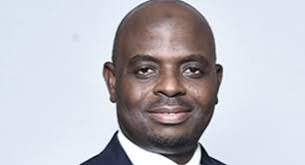The Governor of the Central Bank of Nigeria (CBN), Mr. Olayemi Cardoso, has emphasized the Bank’s commitment to nurturing the next generation of leaders in the financial and social sciences sectors.
Cardoso stressed the importance of addressing the shortage of skilled professionals in finance-related fields within Nigerian universities, noting that developing a robust pipeline of talent is critical to Nigeria’s future economic success.
Cardoso made these remarks during a recent strategic engagement at the CBN Head Office in Abuja with the President and Chairman of the Governing Council of the Nigerian Economic Society (NES), Professor Adeola Adenikinju, NES officials, and representatives of the Nigerian Economics Students Association (NESA).
The CBN Governor reiterated the need for collective efforts to empower youth, creating opportunities and providing them with tools to excel in their fields and become globally competitive.
He highlighted that the meeting laid the foundation for developing talents that would be instrumental in driving Nigeria’s Financial System Strategy.
Following presentations from NES and NESA on research initiatives and recommendations, Mr. Cardoso underscored the need for a mentorship collaborationbetween the CBN, NES, and NESA.
He expressed the Bank’s willingness to support such efforts, aiming to foster a deeper understanding of economic concepts while promoting career growth and innovation in the financial sector.
Cardoso also pointed out the need for clearer communication of economic and monetary policies, stating that complex concepts often hinder effective communication.
He encouraged young economists to play a key role in demystifying economic principles and providing fresh perspectives that resonate with a wider audience.
In addition, the CBN Governor reaffirmed the Bank’s readiness to work with NES and NESA to enhance mentorship, support research, and boost female representationin economics and finance.
He expressed optimism that these collaborations would contribute to building a resilient and inclusive financial sectordriven by talent, innovation, and diversity.
Speaking on behalf of NES, Professor Adeola Adenikinju highlighted key areas for collaboration, including research support, internships, and leveraging social media for communication.
He emphasized the importance of bridging the mentorship gap within the economics community, a key focus area for NES.
The National President of NESA, Comrade Bakre Israel Boluwatife, expressed gratitude for the engagement with the CBN, stating that NESA looks forward to contributing to research efforts in areas such as inflation and money supply.









